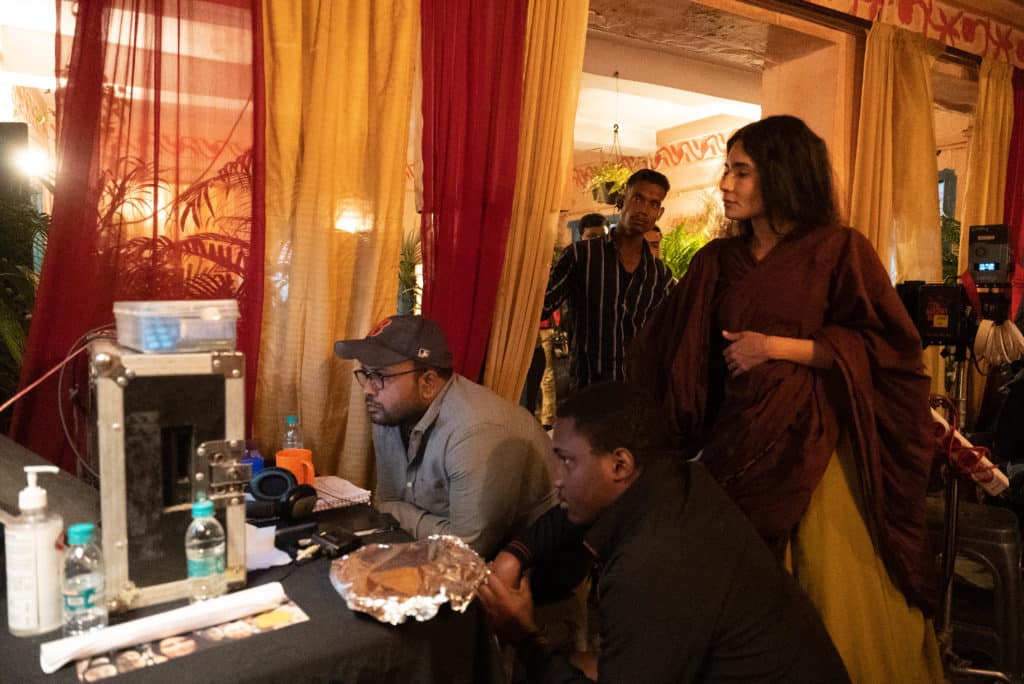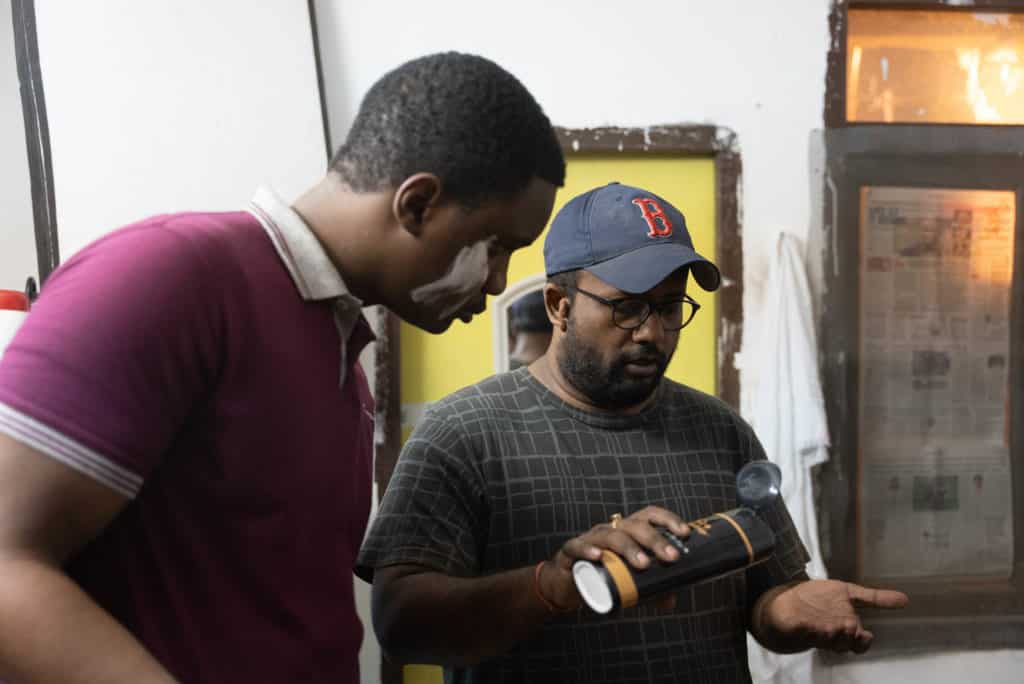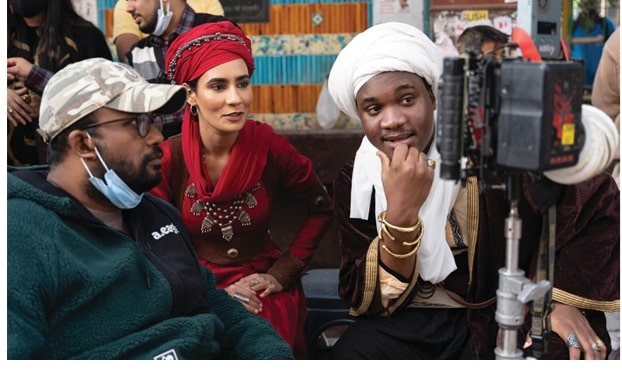Dibakar Das Roy explores sensitive issues of race, color and Identity in his first feature film set in New Delhi starring Nigerian actor Samuel Abiola Robinson.
“You know, there’s a lot of common space that can be explored,” says Dibakar Das Roy, writer-director of the Indian film, Dilli Dark, that’s currently doing the rounds of international film festivals.
The space that he mentions and transcends with his new film is the one occupied by the two blockbuster behemoths – Nollywood and Bollywood – dominating screens, OTT platforms, box-offices and the cinematic conscience worldwide.
So even if it has been shot in India, in the narrow, dusty alleys and packed streets of New Delhi and Noida and the archeological sites of Mehrauli – away from the staple Chandni Chowk and Connaught Place locales of mainstream Bollywood cinema – there’s a tangible connection that could take the film to the lively lanes of Lagos. This link is a man named Samuel Abiola Robinson, the Nigerian actor who plays the lead in Dilli Dark, also Roy’s first feature film.

The connection is also cultural, with a storyline profiling Michael Okeke, as one of the many Nigerians living in Delhi, studying for his
Loading...
MBA and dreaming of a corporate career in India, but gets “hopelessly stuck”. He works as a small-time drug delivery guy to make ends meet, and it is “this job and his African identity which keeps his life coming back full circle; and his search for gainful employment lands him in the fringes of society, where the only person who takes him in is a sketchy godwoman”.
Robinson is well-placed to play Okeke. Like his character, he too, in fact, is a Nigerian living in Delhi, and so on many levels, was able to relate to the film’s storyline. Robinson has been based in Delhi, since his success playing the title role of a football star in Sudani From Nigeria, a 2018 hit film in the South Indian language of Malayalam, and now airing on Netflix. “He becomes the protagonist, a symbol of every person who is kind of going through the same othering that is happening,” says Roy of Robinson’s Okeke.
“There were two primary ideas behind the film; the first was the whole tendency to look at colorism in Indian society; and the second is a larger global theme, to look at identity and belonging, and issues of who is from what country and who belongs where, and what decides nationality, so on and so forth…” adds Roy, who left a career in advertising in the United States (U.S.) to return home to India to learn filmmaking “on the job”, in this case, interspersing historical and contemporary narratives.
“It’s the intersection of two cultures where the protagonist is a foreigner, who starts realizing there are connects that the two continents have had for a very long time. One of the things I wanted to do is look at the cosmopolitan nature of Delhi and how it was, say, centuries ago, and that the whole concept of Delhi being a global city is not a new one…. about 600-800 years ago, there were people from Ethiopia walking the streets of Delhi…”

The inspiration for the film also stemmed from personal experience, of the time Roy spent in Delhi growing up, when he himself “faced a decent amount of bias and bullying for having darker skin”. In the long run, he came to terms with it but wanted to take “a fresh look” at the issue, reference history and this started his fascination for storytelling, and the film.
Roy admits his primary intent is to create stories that bind India with the world.
“Even when I’m looking at telling cross-cultural stories, I feel I want to start off with India as a base, because India has had an intersection with so many different cultures, and so many different nationalities through its history, whether we’re trying to do a period drama, or something contemporary, and that is the one thing that really fascinates me – the interaction of characters from different backgrounds, coming together,” says Roy. “…It’s a beautiful dichotomy that exists, and here’s this character [Okeke] who comes in to contemporary India, in the 2020s, and he’s also from the African continent, but he’s not seeming to find a place for himself in a time that is supposed to be more open…”
Keen on a theatrical release for Dilli Dark, Roy says his “self-funded” 93-minute dark comedy (in Hindi/English but “anyone can understand it”) has already received “great responses” at film festivals in Mumbai, Estonia, Switzerland, Belgium, Italy, the U.S. and other cities. He is also hoping to find the right distribution channels on the African continent. Other than that, he has a great love for the cinema and series’ coming out of Nollywood.
“Nollywood is a massive industry. There’s a lot of love for Bollywood there… And what really strikes me as strange is that there haven’t been many collaborations between the two industries,” says Roy.
Perhaps Dilli Dark is a start.
Loading...
